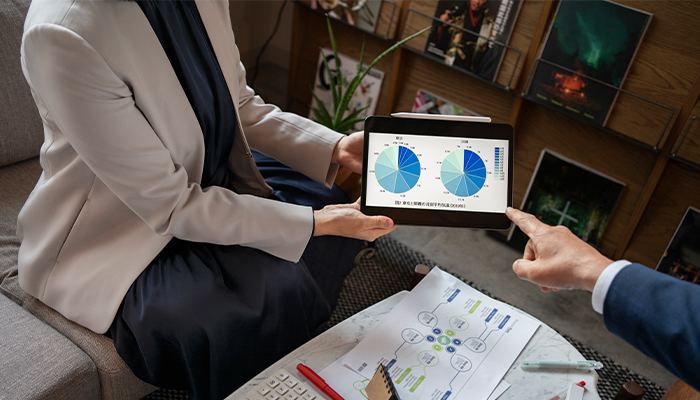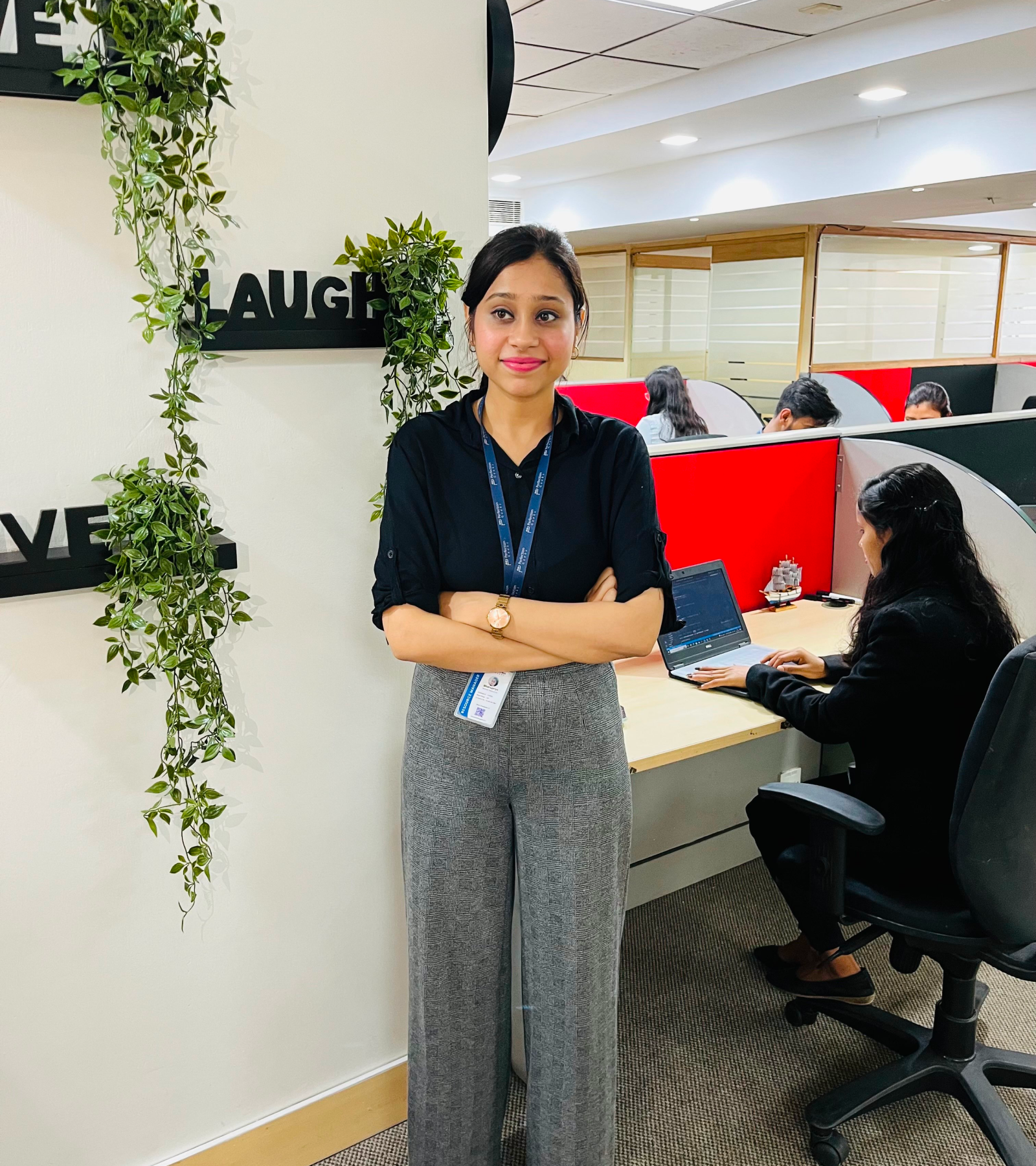Developing DApps (decentralized applications) for the Dubai Market

JUL, 18, 2024 16:15 PM
Developing DApps (decentralized applications) for the Dubai Market
Decentralized applications (dApps) represent a transformative approach to software applications, leveraging blockchain technology to operate without a central authority. Unlike traditional centralized applications, dApps utilize decentralized peer-to-peer networks, ensuring transparency, security, and trust through cryptographic protocols and smart contracts.
Blockchain, the underlying technology of dApps, serves as a distributed ledger that records transactions across a network of computers. Each transaction is verified by network participants (nodes) and added to a block that forms a chronological chain. This decentralized and immutable nature of blockchain eliminates the need for intermediaries, reduces the risk of fraud, and enhances data security.
Understanding Blockchain in Dubai's Context
Dubai has emerged as a global pioneer in embracing blockchain technology, driven by its ambition to become a smart city and a leader in digital innovation. The Dubai Blockchain Strategy, launched in 2016, aims to transform government services and position Dubai as a global blockchain hub. Key initiatives include integrating blockchain into various sectors such as real estate, finance, healthcare, and logistics to enhance efficiency, transparency, and security.
The Dubai Blockchain Strategy 2020 sets ambitious goals, including migrating all government documents to blockchain by 2020, digitizing 100% of government transactions using blockchain technology, and attracting global blockchain startups and talent to Dubai’s thriving ecosystem.
Importance of dApps in Dubai: Revolutionizing Key Sectors with Blockchain
Dubai's ambitious vision to become a smart and sustainable city hinges significantly on the adoption of decentralized applications (dApps) powered by blockchain technology. These applications are poised to revolutionize various sectors by leveraging blockchain's decentralized architecture and smart contract capabilities. Here’s an in-depth look at how dApps are transforming key sectors in Dubai:
Government Services
dApps hold immense potential to enhance transparency, efficiency, and accountability in Dubai's public sector. By utilizing blockchain technology, government agencies can streamline administrative processes, automate document verification and compliance procedures, and ensure the secure storage and sharing of public records. This not only reduces bureaucratic delays but also minimizes the risk of data manipulation or fraud. For instance, blockchain-based identity management systems can facilitate seamless access to government services while safeguarding personal data integrity.
Real Estate
The real estate sector in Dubai stands to benefit significantly from dApps built on blockchain. Property transactions often involve multiple intermediaries and extensive paperwork, leading to delays and increased costs. dApps can streamline these transactions by providing a transparent and immutable record of property ownership, transaction history, and contractual agreements. Smart contracts can automate the execution of property transactions, including payment transfers and contract enforcement, thereby reducing the dependency on intermediaries and minimizing the likelihood of disputes or fraudulent activities. This transparency and efficiency not only enhance investor confidence but also attract global real estate investments to Dubai's booming market.
Finance
In the financial sector, dApps are reshaping traditional banking and financial services by offering secure, efficient, and cost-effective alternatives. Blockchain-based dApps facilitate peer-to-peer transactions, lending platforms, automated asset management, and decentralized trading systems without the need for traditional intermediaries. Smart contracts enable automatic execution of financial agreements, ensure compliance with regulatory requirements, and enhance transparency in financial transactions. This innovation fosters financial inclusion by providing access to banking services and investment opportunities to underserved populations while reducing transaction costs and operational complexities for financial institutions in Dubai.
Supply Chain Management
Supply chain management in Dubai's logistics sector can benefit immensely from blockchain-powered dApps. By improving traceability, transparency, and efficiency across the supply chain, dApps enable real-time tracking of goods, authentication of product provenance, and optimization of inventory management. Blockchain ensures that each transaction within the supply chain is securely recorded and immutable, reducing the risks associated with counterfeit goods, theft, or logistical errors. Smart contracts automate contract execution, payment settlements, and compliance checks, thereby enhancing operational efficiency and minimizing delays in logistics operations. This transparency and reliability in supply chain management strengthen Dubai's position as a global logistics hub and enhance its competitiveness in international trade.
Healthcare
In the healthcare sector, dApps offer solutions to enhance patient care, data security, and operational efficiency. Blockchain-based dApps enable secure sharing and management of medical records, ensuring patient data privacy while facilitating interoperability between healthcare providers. Smart contracts streamline administrative processes such as insurance claims processing, appointment scheduling, and medical supply chain management. This reduces administrative costs, minimizes errors, and improves the overall quality of healthcare services in Dubai. Moreover, blockchain technology enhances transparency in clinical trials, the pharmaceutical supply chain, and healthcare resource allocation, fostering innovation and research collaboration within the healthcare ecosystem.
Smart Contract Development for dApps in Dubai
Smart contracts are self-executing contracts with predefined rules written in code, deployed on blockchain networks to automate and enforce agreements without intermediaries. In Dubai, smart contract development is crucial for sectors such as real estate, logistics, finance, and healthcare to ensure transparent, secure, and efficient operations.
Companies specializing in dApp development services in Dubai focus on creating robust, scalable, and auditable smart contracts tailored to specific business requirements. Smart contracts automate processes like payment settlements, identity verification, supply chain tracking, and digital rights management, reducing costs, minimizing disputes, and enhancing operational efficiency.
Benefits of Using dApps in Dubai
Transparency and Accountability
Blockchain technologies immutable ledger plays a pivotal role in enhancing transparency and accountability across various sectors in Dubai. By recording transactions in a decentralized manner, blockchain ensures that all participants in a network have access to the same information, reducing the risk of disputes and fraudulent activities. In sectors like real estate, where property ownership and transaction records are critical, blockchain enables transparent and tamper-proof records. This transparency not only enhances investor confidence but also simplifies regulatory compliance and audit processes. For instance, Dubai’s real estate market can benefit from blockchain-based dApps by providing clear property ownership histories, reducing the complexity and time involved in property transfers, and minimizing the risk of fraud.
Security
The decentralized architecture and cryptographic algorithms inherent in blockchain technology provide robust security measures to protect sensitive data and mitigate cyber threats. In sectors handling confidential information, such as healthcare and finance, maintaining data integrity and ensuring secure access are paramount. Blockchain’s distributed ledger ensures that data remains tamper-proof and resistant to unauthorized changes, reducing the risk of data breaches and unauthorized access. By storing data across multiple nodes in a network, blockchain eliminates single points of failure and enhances resilience against cyberattacks. In Dubai, where cybersecurity is a priority, adopting blockchain-based dApps strengthens data protection measures, fosters trust among stakeholders, and ensures compliance with stringent regulatory requirements.
Efficiency

One of the key advantages of dApps in Dubai is their ability to automate and streamline processes through smart contracts. Smart contracts are self-executing agreements with predefined rules written in code, deployed on blockchain networks. In sectors like logistics, smart contracts enable automated contract execution, real-time tracking of shipments, and seamless coordination between multiple parties in the supply chain. This automation reduces paperwork, minimizes human errors, and accelerates transaction processing times. For logistics companies operating in Dubai’s bustling trade environment, blockchain-based dApps optimize supply chain management by enhancing operational efficiency, reducing overhead costs, and improving overall logistics performance.
Cost Savings
By eliminating intermediaries and reducing transaction costs, blockchain-based dApps make financial transactions more economical and accessible, supporting Dubai’s aspirations to become a global fintech hub. Traditional financial systems often involve multiple intermediaries, each adding fees and delays to transactions. In contrast, blockchain enables peer-to-peer transactions, eliminating the need for intermediaries and reducing transaction fees. This cost-effective approach not only benefits consumers and businesses by lowering transaction costs but also democratizes access to financial services, particularly for underserved populations. In Dubai, where fintech innovation is thriving, blockchain-based dApps facilitate seamless cross-border transactions, international payments, and digital asset management, positioning the city at the forefront of financial innovation in the region.
Innovation and competitiveness
The adoption of dApps in Dubai fosters innovation by enabling new business models and technological solutions across various industries. By leveraging blockchain’s decentralized and transparent nature, Dubai attracts global investors, entrepreneurs, and tech innovators seeking to capitalize on the city’s progressive regulatory environment and robust infrastructure. Blockchain-based startups and enterprises in Dubai are driving innovation in sectors such as real estate, healthcare, supply chain management, and governance. The city’s proactive approach to blockchain adoption not only enhances its attractiveness as a hub for digital innovation but also positions Dubai as a leader in pioneering blockchain solutions on a global scale. By embracing dApps, Dubai cultivates a conducive ecosystem for entrepreneurship, accelerates technological advancements, and strengthens its competitive edge in the global digital economy.
DeFi (Decentralized Finance) in Dubai
Decentralized Finance (DeFi) leverages blockchain technology and dApps to revolutionize traditional financial services by offering transparent, accessible, and efficient alternatives to banking and investment. In Dubai, the financial sector is exploring DeFi solutions for peer-to-peer lending, decentralized trading platforms, automated asset management, and stablecoin issuance.
DeFi protocols enable Dubai-based businesses and investors to access financial services like loans, savings, and investments directly through decentralized applications, bypassing traditional banking intermediaries. The rise of DeFi in Dubai reflects growing interest in blockchain-based financial innovations and reinforces Dubai’s position as a global financial center embracing digital transformation.
Web3 and the Future of Dubai’s Technological Landscape
Web3 signifies the next evolutionary phase of the internet, characterized by decentralized protocols, blockchain technology, and decentralized applications (dApps). In Dubai, Web3 technologies are catalyzing a profound transformation across various industries, reshaping the city’s technological landscape and paving the way for innovative advancements in governance, business models, and citizen services.
Decentralized Governance
Web3 technologies empower decentralized governance models, enabling communities and organizations in Dubai to make collective decisions transparently and autonomously. Blockchain-based platforms facilitate secure voting systems, digital referendums, and governance protocols that ensure transparency, accountability, and inclusivity. For Dubai, decentralized governance holds the promise of enhancing civic engagement, reducing bureaucratic inefficiencies, and fostering more responsive and participatory decision-making processes.
Digital Identity Management
In Dubai, digital identity management is undergoing a paradigm shift with the advent of Web3 technologies. Blockchain-based digital identities provide individuals with secure, verifiable, and portable credentials that can be seamlessly authenticated across different platforms and services. This innovation enhances privacy protection, mitigates identity theft risks, and simplifies access to public and private sector services. By leveraging decentralized identity solutions, Dubai aims to streamline administrative processes, enhance the user experience, and ensure data sovereignty for its residents and businesses.
Secure peer-to-peer transactions
Web3 facilitates secure peer-to-peer transactions through blockchain-powered decentralized applications (dApps). These applications enable direct interaction and exchange of value between users without intermediaries, ensuring transparency, efficiency, and cost-effectiveness. In Dubai, blockchain-based dApps are revolutionizing financial services, supply chain management, and digital asset trading by eliminating friction, reducing transaction costs, and accelerating transaction processing times. This decentralized approach not only enhances financial inclusion but also fosters innovation in payment systems, investment platforms, and cross-border trade.
Transformation of Business Models
Dubai’s embrace of Web3 technologies is driving the transformation of traditional business models across industries. By integrating blockchain into operations, businesses in Dubai can automate processes, enhance data security, and unlock new revenue streams through tokenization and decentralized finance (DeFi) solutions. Web3 enables business ecosystems to evolve from centralized, hierarchical structures to decentralized networks governed by smart contracts and consensus mechanisms. This shift fosters collaboration, innovation, and agility, positioning Dubai-based enterprises at the forefront of global digital innovation.
Smart City Initiatives
As a leading smart city, Dubai leverages Web3 technologies to enhance urban sustainability, efficiency, and quality of life for its residents. Blockchain-powered smart city initiatives facilitate real-time data management, predictive analytics, and automated decision-making in areas such as traffic management, energy consumption, and public safety. These innovations optimize resource allocation, reduce carbon footprints, and improve infrastructure resilience, making Dubai a model for sustainable urban development in the digital age.
Commitment to Digital Transformation
Dubai’s commitment to digital transformation through Web3 technologies underscores its proactive approach to innovation and global competitiveness. By investing in blockchain research, fostering a supportive regulatory environment, and attracting blockchain talent and investment, Dubai aims to accelerate technological advancements and economic growth. Web3 positions Dubai as a hub for digital innovation, entrepreneurship, and investment in emerging technologies, reinforcing its status as a leading global city in the digital economy.
Conclusion
Developing dApps for the Dubai market goes beyond technological innovation; it represents a strategic shift towards decentralized, transparent, and efficient systems. By leveraging blockchain technology and smart contracts, Dubai can enhance governance, streamline operations, and foster economic growth across key sectors.
In conclusion, as Dubai embraces blockchain technology and decentralization, the development and adoption of dApps will play a pivotal role in shaping its technological landscape, enhancing competitiveness, and solidifying its position as a global leader in digital innovation.
Strategy
Design
Blockchain Solution
Development
Contact US!
India 
Plot 378-379, Udyog Vihar Phase 4 Rd, near nokia building, Electronic City, Sector 19, Gurugram, Haryana 122015
USA 
1968 S. Coast Hwy, Laguna Beach, CA 92651, United States
Copyright © 2025 PerfectionGeeks Technologies | All Rights Reserved | Policy





